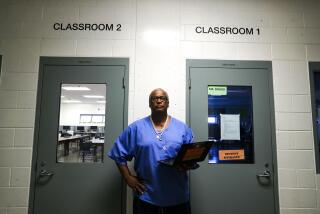Can substance-abuse recovery take place on a college campus?
- Share via
Reporting from Hollywood, Fla. — College students who are lucky enough to realize they need treatment for substance-use disorders are faced not only with the daunting task of recovery but also with reintegration into college life -- otherwise known as the land of pills and booze.
A new program, however, may begin cropping up on U.S. campuses to assist young people who are trying to recover and aid those who wish to achieve sobriety.
The Collegiate Recovery Communities emerged from a program at Texas Tech University and now has spin-offs at several U.S. universities. The program is a peer-based, on-campus model that aims to promote a culture of recovery. Little is known about how these programs can help students, but data so far suggest students benefit from the support. After six months, students reported feeling strong levels of support for their recovery and satisfaction with their lives, according to the first study to assess collegiate recovery programs.
There is growing interest in how to help both high school and college students resume their education after substance-abuse treatment, said Alexandre B. Laudet, director of the National Development and Research Institutes in New York, who is conducting the research on collegiate recovery.
“It’s believed that a lot of young people may be forgoing their education because they are afraid it will jeopardize their sobriety,” Laudet said. “There is a shocking lack of recovery support. And, in the absence of symptom management, the problem is going to start again.
“If we can show” collegiate recovery programs “work to keep kids in college and sober, everybody wins,” she added. “They are going to be role models in society, and they are going to give back to their colleges.”
It’s too soon to assess whether the programs can curb relapse rates, which are typically high in college-age students. Laudet’s study showed many of the students in the programs had a history of serious substance abuse and emotional problems. But more than half of the students said they would not have enrolled in their particular college if it had not had a recovery program.
The study was presented Tuesday at a meeting of the College on Problems of Drug Dependence.
Return to Booster Shots blog.
More to Read
Sign up for Essential California
The most important California stories and recommendations in your inbox every morning.
You may occasionally receive promotional content from the Los Angeles Times.










